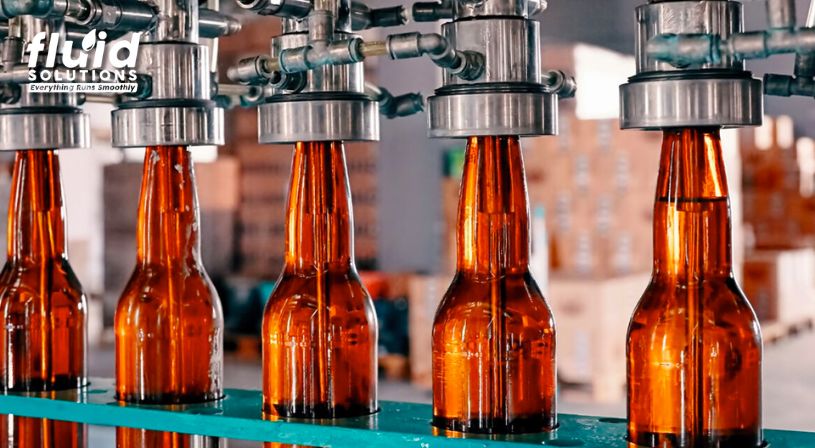
Safety remains a paramount concern in the food processing industry. As such, only NSF-certified food-grade lubricants are authorized for use in food processing machinery. But what exactly does NSF certification entail? Are all additives created equal?
This article explores the essential additives used in food-grade lubricants, their critical functions, and the importance of NSF certification. It also outlines how to source reputable food-grade greases suppliers in the Philippines.
Key Takeaways
- NSF-certified food-grade lubricants are the recognized standard for ensuring safety and regulatory compliance in food processing operations.
- Food-grade additives such as antioxidants, anti-wear agents, and corrosion inhibitors boost the performance and the longevity of the service life of lubricants while adhering to stringent food safety standards.
- Selecting the appropriate food-grade oils and greases helps prevent contamination, prolongs the component’s life lifespan, and safeguards consumer health.
What Are Additives in Food-Grade Lubricants?
Additives are chemical compounds integrated into lubricants to augment their functionality. These components enhance resistance to corrosion, oxidation, and mechanical wear, thereby extending the service life and effectiveness of the food-grade lubricants.
Unlike general industrial lubricants, food-grade lubricants are subject to stringent safety standards. Only additives compliant with the guidelines set by the National Sanitation Foundation (NSF) and the Food and Drug Administration (FDA) are permitted. These specifications ensure that additives are:
- Non-toxic and safe for incidental food contact
- Odorless, tasteless, and colorless
- Chemically inert
- Used in minimal concentrations
These additives must be used in trace amounts, typically not exceeding ten parts per million (0.001%) by weight or volume of the lubricant, to minimize any potential risk of contamination.

Common Types of Additives Used in Food-Grade Lubricants
Below are the primary categories of additives found in of additives in food processing lubricants
- Antioxidants – Prevent oxidative degradation when lubricants are exposed to elevated temperatures and oxygen, thereby minimizing sludge and acid formation that can compromise machinery and reduce lubricant longevity.
- Anti-Wear Agents – Establish a protective film on metal surfaces to minimize friction and component wear, particularly in high-pressure applications. A prevalent example is alkylammonium phosphate ester salts.
- Corrosion Inhibitors – Shield equipment from rust and chemical deterioration, especially in high-humidity or washdown-prone environments. Common inhibitors include alkylammonium phosphate salts and oleyl sarcosine.
- Viscosity Modifiers – Regulate the flow and film strength of lubricants across varying temperatures, reducing the frequency of lubricant replacement and simplifying maintenance routines.
- Emulsifiers and Demulsifiers – Emulsifiers stabilize lubricant and water mixtures, preventing separation, while demulsifiers facilitate the removal of water to inhibit rust and corrosion.
- Extreme Pressure (EP) Additives – Though seldom necessary in food processing due to lighter loads, EP additives—such as triphenylphosphorothionate (TPPT)—are NSF-approved for select applications in food industry lubricants and contain inactive sulfur suitable for H1 lubricants.
Choose Safety and Performance—Partner with Fluid Solutions
Food processing lubricants play a pivotal role in enhancing the performance and durability of machinery in food and beverage manufacturing. However, not all lubricants are formulated equally—only NSF-certified lubricants can guarantee the safety and integrity required for food production.
At Fluid Solutions Inc., a trusted food-grade greases supplier in the Philippines, our lubrication specialists are equipped to advise, customize, and optimize your lubrication strategies. We offer a comprehensive portfolio of NSF-certified lubricants and industry-specific greases tailored to your operational demands.
Contact our experts today at (02) 8370 5928 or (0917) 894 9156 or reach us via email at inquiry@fluidsolutions.com.ph. Check our Facebook and LinkedIn pages for updates and product recommendations.
Social Media Links:
Facebook: https://www.facebook.com/fluidsolutionsinc
LinkedIn: https://www.linkedin.com/company/fluid-solutions-inc


